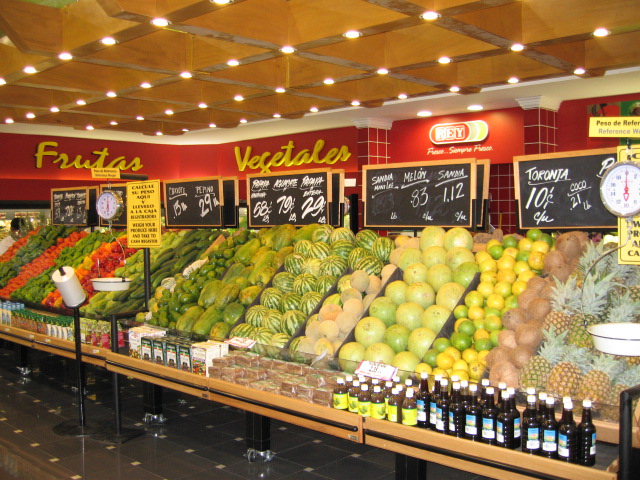
The use of cloud computing can be a competitive edge in a highly competitive marketplace. These are some of the challenges facing the FMCG industry.
Challenges and how the cloud can solve it
- Set margins and the constant need to reduce costs are placing enormous pressure on FMCG companies, who not only now compete in an environment of intense global competition, but who also need to shift goods across an increasingly complex and often disjointed global supply chain
Cloud based ERP and supply chain systems can help track goods right down to the minute and street to optimize for cost and time.
- FMCG industry has seen a radical change in market requirements, moving from operational process support, to supporting more strategic and tactical supply chain processes through the use of effective decision tools for the executive level. This has seen a lot of companies implement sophisticated software to support these activities, but needless to say it’s also thrown up a host of new challenges.
Cloud based reporting technologies enable centralized, shareable repositories of dashboards and reports that show up to the minute data. This helps MIS and BI teams wow users with actionable analytics.
- Technology strengthens all areas of a company’s supply chain. Co-existing alongside these technologies there’s the initial outlay of capital, ongoing maintenance and license costs for each application
With its pay-as-you-go model, cloud computing turns initial capital expense (CAPEX) into operating expense (OPEX). License costs are now as varied as per user or based on data transferred rather than per server.
- It generates a lot of disparate information from these systems. Integrating functionality and data sources that have traditionally been stored in separate applications and databases is essential for organizations that want clearer insight into data from across their supply chain.
Cloud based reporting technologies enable data from diverse sources to be displayed on the same report or dashboard. Machine Learning is also applied to gain quick insight from disparate data

Benefits
- Information Anytime, Anywhere: FMCG companies often keep data-heavy applications in-house, such as inventory management, logistics, customer relationship management, planning and forecasting. This leads to challenges with accessing information on-the-go. With the cloud, organizations can provide these applications over the internet.
- Lower TCO: Cloud computing offers real opportunities for FMCG companies to lower the cost for their data storage. Storage can be purchased based on requirement and need not be kept idle.
- Seamless Integration of Systems: FMCG companies maintain relationships with retailers, suppliers and manufacturers. They share logistical and supply chain information with partners in order to keep their supply chain as efficient as possible. This is often done by exchange of differently formatted data at periodic intervals or as the need arises.
With cloud computing, virtually any business application can be stored in the Cloud and integration can be done using Web Service Calls that exchange data and activities on the fly –
- Planning and forecasting tools
- Customer relationship management
- Enterprise resource planning
- Supply chain management
- Financial management
- Human resources
- Order and inventory management
- Get IT up and running quickly: Cloud service is as easy as like a click of a button. It can be operated from any part of the world from a single login. No need for hardware and set up of data centers.
- Manage your cash flow with low monthly fees: Cloud computing is available on monthly rental basis among other plans. The main moto of cloud billing is pay as per your usage. This also allows the clients to use the latest and advanced technology which is provided by cloud providers at no extra cost.
- Reduce dependence on internal IT resources: Businesses always had a limited scope in terms of technologies their IT department could maintain based on their staffing model. (SaaS) model would be a better option as the cloud providers create the software, hardware, networks and manage it for their clients.
- Making changes on demand:Clients can allow a number of users from their company to operate cloud computing services. They can add and remove services and users as they wish. This allows businesses to run systems highly optimized to their requirement.
Advantage with DROOTOO’s smart unified cloud platform
Many services are available from multiple cloud vendors in different countries. For requirements in a specific country, there could be a need to use different cloud providers. With multiple cloud vendors offering many services, for different purposes, at varied price points, and requiring many setup and configuration steps, it makes sense to use Drootoo Smart Cloud platform to take away the complexities and allow users to focus on getting their work done.
- Complexities of setup and configuration are hidden and a simple, easy to use interface is provided to the users. This lowers barriers to allow everyone from suppliers, distributors and employees to collaborate together.
- Users can compare services from multiple cloud vendors to select a suitable one. Depending on the country, required services could be available from different vendors and it is cumbersome to use multiple sites to manage those. It also helps if all relevant information is available in one place. From a legal perspective, it is important to adhere to the laws regarding data storage and this is enabled by region based service selections.
- Many repetitive tasks, involving various cloud vendors, can be done with a few clicks or selections. They need scripts or programs on the cloud vendor portals. Reducing this complexity for business analysts enables them to perform such repetitive tasks quickly and easily.
Hence, it is possible to save Time, Money and Effort with Drootoo smart cloud as you take advantage of cloud computing to sell to the future generations.
Navigate back to: Case Studies